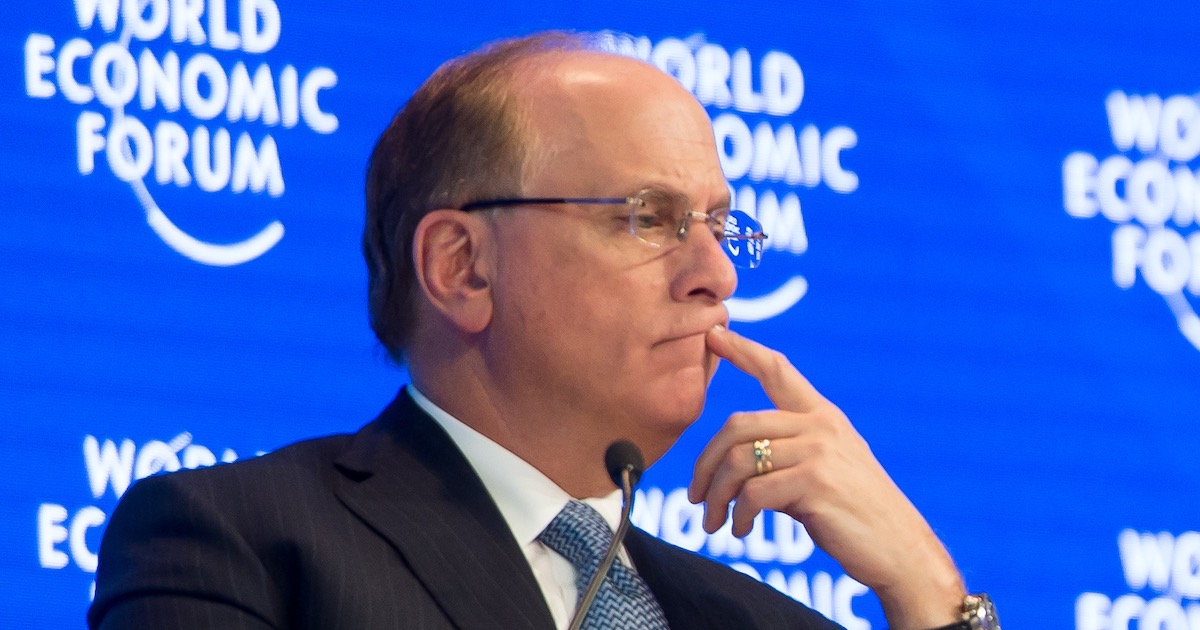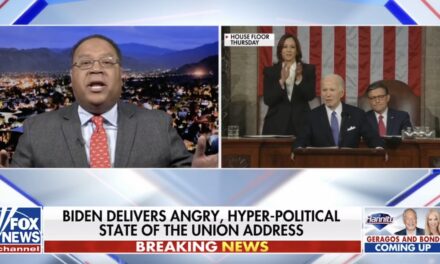LTP News Sharing:
“The most noticeable thing about Larry Fink’s letter to his investors is the deafening silence on ESG and BlackRock’s associated self-inflicted wounds,” Free Enterprise Project Deputy Director Stefan Padfield says in a response published at RealClearMarkets.
Read Stefan’s entire commentary below.
BlackRock CEO Larry Fink published his annual letter to investors recently, but his silence on three issues may speak louder than anything he said therein.

Stefan Padfield
First, Fink stayed true to his promise to avoid using the term “ESG,” which stands for the use of environmental, social, and governance factors in corporate decision-making. By my count, Fink had used “ESG” four times in his 2021 letter but did not use it all in this year’s letter. Why does this matter? As I have recently written elsewhere:
People regularly use “woke capital,” “stakeholder capitalism,” and the use of “ESG” (environmental, social, and governance) factors interchangeably. What these terms and phrases often have in common is a rejection of the profit maximization or “shareholder capitalism” or “shareholder wealth maximization” norms that have left even struggling students today better off than kings and queens of bygone eras—and brought us to the cusp of eradicating poverty.
To be fair, some proponents of woke capital argue that ESG is “good for business” in that it merely helps avoid short-termism and better captures all the risks impacting long-term value. To this, critics respond by noting that profit-maximizing capitalism already takes all material information into consideration and already includes time horizons in its expected value calculations. Thus, one should rightly be suspicious of ESG operating as a Trojan horse for pushing a leftist agenda that advocates can’t get implemented via democratic means. This becomes a particularly compelling concern once one notices that there appears to be little, if any, light between standard ESG platforms and the wish lists of Bernie Sanders, Elizabeth Warren and Alexandria Ocasio-Cortez. Protestations that this is all just shareholder democracy in action rightly fall on deaf ears once one notices that what ESG proponents call shareholder democracy is actually powerful institutions like Blackrock, Glass Lewis and the SEC leveraging other people’s money to advance the ideological preferences of their managerial elite.
Accordingly, Fink’s elimination of “ESG” from his vocabulary might be seen as some sort of win for proponents of free market capitalism. However, Fink has apparently simply replaced ESG with “conscious capitalism,” which suggests nothing much has really changed given that “ESG is conscientious capitalism in practice.” For example, Fink referenced “carbon” in some form nineteen times (e.g., “decarbonize”; “lower-carbon”), as well as using the phrase “energy transition” five times – suggesting BlackRock remains wedded to value- and security-destroying climate alarmism. This would be less of a problem if BlackRock wasn’t so darn powerful. Clearly aware of that power, Fink noted that BlackRock is also in favor of public-private partnerships to advance his goals and that BlackRock would use “one of the largest stewardship teams to engage with companies” – all of which one might be forgiven for viewing as just a tad bit fascistic.
Second, Fink made no mention of Texas’s decision to pull $8.5B from BlackRock in response to BlackRock’s perceived politicization of its asset management business. As Will Hild noted in a thread on X unpacking BlackRock’s letter in response to the divestment:
What BlackRock CAN’T deny is that they use the assets they managed for Texas Permanent School Fund and others to push companies to push destructive, counterproductive, inflation-creating net zero targets. They can’t deny it because, up until we started sounding the alarm, they bragged about it publicly on their website.
Third, Fink made no mention of Mississippi’s demand that BlackRock cease and desist making untrue statements about its ESG investments. To be fair, the demand may have come directly on the heels of Fink’s letter, but BlackRock was clearly aware of the risks associated with its practical embrace of ESG and yet Fink avoided any discussion of this in his letter. As Spencer Brown notes in his related piece:
These “untrue and misleading” claims, the cease and desist says, fall into two main categories. The first is BlackRock’s marketing of “non-ESG funds” which Watson says is “misleading to investors who are not interested in ESG and are led to believe that BlackRock’s non-ESG funds will be managed for the sole purpose of investors’ financial return without regard to ESG criteria.” However, Watson says, that’s not true “because BlackRock has committed to use all assets under management to advance the environmental agenda of reducing carbon emissions to ‘net zero.’”
…The second category of “untrue and misleading” claims outlined by Watson deals with BlackRock’s ESG funds and claims that such investments provide long-term financial benefits for companies and clients. “These statements are untrue, or omit to state material facts to make them not misleading,” Watson says in the cease and desist, “because the consideration of ESG factors does not provide an indication of better financial returns or current or future risk profiles.
So, why these glaring omissions? Stephen Soukup may have identified a possible explanation when he noted that:
Because of his involvement in ESG and his aggressive focus on pushing “sustainability” on American corporations, Fink has become famous as an enemy of fossil fuels and an advocate for a “green” energy transition.
He doesn’t like that one bit.
About nine months ago, Fink began his public retreat from the idea he had made famous. Appearing at the Aspen Ideas Summit last June, Fink explicitly disavowed the use of the term ESG. “I don’t use the word ESG any more,” he said, “because it’s been entirely weaponized.” What he meant by that, of course, was that he didn’t like being associated with a term that had suddenly taken on a negative connotation. He didn’t like being famous as the guy who built ESG into a massive investment scheme.
Between then and now, Larry Fink has continued to attempt to roll back his and his firm’s reputation as the authorities on ESG, sustainability, and the post-fossil fuel business and investment environment. For the most part, he has done so in a low-key fashion, preferring not to remind people of his fame as he tries to undo it.
Perhaps that’s why the most noticeable thing about Larry Fink’s letter to his investors is the deafening silence on ESG and BlackRock’s associated self-inflicted wounds. Some may protest that BlackRock has seen tremendous overall growth recently in its assets under management (AUM) despite the issues noted above, and Fink made a point of highlighting that in his letter. However, I don’t recall any mention of what sort of return BlackRock generated on those assets. To be fair, BlackRock shareholders, to whom the letter is addressed, don’t necessarily care about that return so long as BlackRock stock itself is performing well. But my reading of the stock chart on the morning of April 18, 2023, suggests BlackRock stock is underperforming the S&P 500 by 12% for the past twelve months. So, why would assets keep piling into BlackRock despite all these concerns? Perhaps BlackRock’s ESG funds are the market’s new tulips. Regardless, it’s going to take a lot more than Larry Fink sticking his head in the sand to make these issues go away.
Stefan Padfield is the Deputy Director of the Free Enterprise Project at the National Center for Public Policy Research. This was first published at RealClearMarkets.
Author: Stefan Padfield







